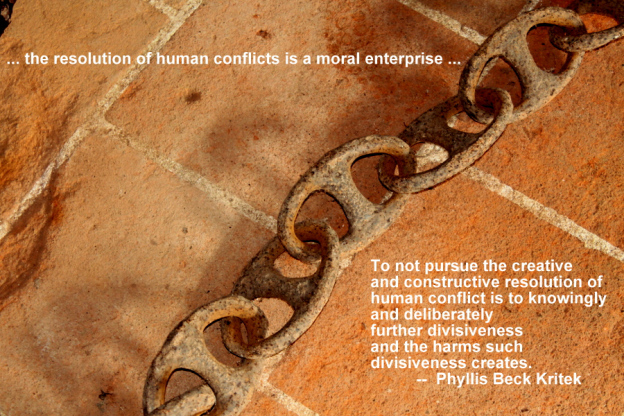If you ever find yourself tired of appealing denials and advocating for care, reading the book “Negotiating From An Uneven Table: Developing Moral Courage In Resolving Our Conflicts” may be the verbal elixir you need. Nurse and author Phyllis Beck Kriteck spells out how to maintain a moral backbone in the world of unevenly granted power. As indicated by the title, Kritek speaks at length to the fact that one party holds the upper hand in almost all negotiations. Disadvantaged negotiators find themselves in a number of compromising situations in which they are not prepared. Kriteck suggest “ten ways of being” to help those in such positions to stay at the table and win important concessions. The book introduction serves as a reminder of how important the task is to parties at an extreme negotiating disadvantage:
“The most compelling premise of the book is that the resolution of human conflicts is a moral enterprise that is the responsibility of every human being. To not pursue the creative and constructive resolution of human conflict is to knowingly and deliberately further divisiveness and the harms such divisiveness creates.”
(Source: Negotiating at an Uneven Table: Developing Moral Courage in Resolving Our Conflict (Josey-Bass, 2002) p. 17)




